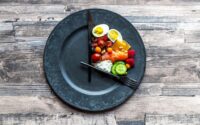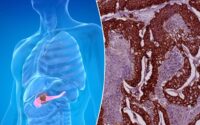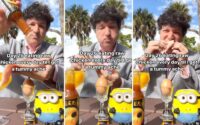I survived cancer as a teen — ‘awful’ treatments made me want to be a doctor
A young British woman who survived cancer was so inspired by the “superhero” medics who oversaw her treatment that she is studying to become a doctor to help others.
Ellie Waters, 21, said she was just 14 years old when she was diagnosed with a rare form of soft tissue cancer and given just a 20% chance of survival.
The young athlete didn’t know what to make of the embarrassing and uncomfortable lump she found on her buttocks after falling during a run.
At first she assumed it was just a pulled muscle. She continued her active lifestyle, running cross country and playing other sports, but she grew concerned when she noticed the lump continued to develop. She also experienced chronic constipation, started losing weight and gained a pain in her left leg.
Waters eventually told her parents, who booked an appointment with her doctor.
After several tests and consultations, Waters was diagnosed with Stage 4 alveolar rhabdomyosarcoma, which affects muscle tissue.
“When I was diagnosed in September 2015, it was my mom that had to break the news to me,” Waters recalled to SWNS.
“At the time, I was scared, as I was only 14 and didn’t know that much about cancer apart from it could kill you.”
The teen underwent a grueling 18 months of intense chemotherapy and radiotherapy.
“Chemo was awful. I was constantly sick, and my hair fell out,” Waters recounted.
“Having cancer as a teenager is so tough because you want to be able to do all the things your friends can, like go to parties — and you can’t. It’s suddenly taken away from you.”

But while she felt she lost that part of her childhood, her cancer diagnosis paved a path for her career.
“Before my diagnosis at 14, I was obsessed with ‘The Apprentice’ and wanted to make lots of money and enter the corporate world. But after having cancer, this all changed,” Waters explained.
After spending years in hospitals, Waters was inspired to become a doctor.
“I became obsessed with wanting to become a doctor after having cancer and would research my treatments and would constantly be watching doctor programs on the TV,” she said.
“The staff at Queen’s Medical Centre also became my role models and were like superheroes to me, flying around the wards looking after people, and I knew I wanted to be part of this.”

Not everyone was as excited about Waters’ new calling as she was.
“When I first told people I wanted to be a doctor after surviving cancer, I think my mom and my doctors were a little shocked as I had already spent so much time in hospital myself,” she said.
“I think they worried that it may be physically or mentally draining for me as I would have lots of memories from being treated in hospital.”
She defied the odds and beat cancer, but she started to experience hot flashes, difficulty sleeping, fatigue and itchy skin.

When her period failed to return six months after being declared cancer-free, she said she was shocked to learn she had entered early menopause.
She began hormone therapy and returned to school, where she managed to earn top grades in biology, chemistry and math.
She was accepted to all four universities of her choice, and confirmed that medical school was the right place for her.
Now five years cancer-free, Waters is in her second year of medical school at Keele University in England.

She plans to become an obstetrician or gynecologist to help others suffering from similar conditions.
“I am very interested in women’s [health] in particular because I have experienced things at such a young age [that] most women don’t,” Waters said.
“My infertility and early menopause has sometimes made me not feel like a woman, and I have had to redefine what being a woman means. Going through menopause at 15 has also opened my eyes to vaginal problems, which are very common for women to go through, and I want to show them they should be talked about.”
“It should not be embarrassing or a taboo subject to talk about what is going on down there,” she declared.


